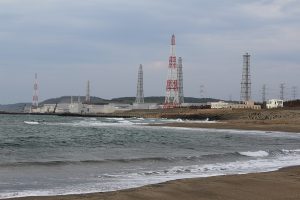The Japanese operators of the Fukushima Nuclear Power Plant have been forced to delay the reopening of a separate facility in Niigata in western Japan after regulators discovered serious security flaws.
The Tokyo Electric Power Company (TEPCO) nuclear power plant in Niigata is facing a temporary suspension due to lax anti-terrorism equipment and the insufficient protection of nuclear materials. The Nuclear Regulation Authority (NRA) imposed a level four “red” warning over that state of their security after equipment preventing unauthorized access was found to be malfunctioning in 15 different locations on the grounds. The equipment may have been broken since March of last year, rendering the facility vulnerable to potential terrorist attacks or intruders. TEPCO security staff are believed to have been aware of the issue but failed to act or inform senior management.
Ten years after the nuclear accident at Fukushima Daiichi forced over 150,000 residents in northeastern Japan to flee their homes, ensuring nuclear safety remains a major challenge in Japan. Some areas surrounding Fukushima Daiichi remain uninhabitable from radiation that continues to leak from the crippled nuclear reactor. Although TEPCO has emphasized its commitment to raising safety awareness, there is anxiety that the sense of complacency prevalent before the Fukushima disaster has crept back in.
The latest safety breach follows a string of managerial problems plaguing TEPCO. Last September an employee used another employee’s ID card without permission to enter the central control room at the Niigata facility.
The NRA pointed to systemic problems behind the company’s deteriorating management. They will continue inspecting the facility to determine the cause and background of the violations, and whether the issues are attributable to TEPCO and its attitude toward safety. The additional inspections are expected to take at least one year.
The NRA said the safety breaches were in violation of the Nuclear Reactor Regulation Law and ordered TEPCO to submit a written explanation by April 7. TEPCO said they accepted the NRA’s order to suspend operations but were unable to provide an explanation. TEPCO’s operating license depends on passing the NRA’s ongoing safety inspections, which will determine if the safety flaws have been corrected. It’s the first time a regulator in Japan has ordered disciplinary action against a commercial nuclear plant operator.
Last month Prime Minister Suga Yoshihide commented that the latest safety infringement cast doubt on TEPCO’s qualifications to handle nuclear power plants. He called the incident “regrettable” and urged TEPCO to respond to the inspection results and implement drastic measures to improve management structures.
The illusion of achieving absolute nuclear safety collapsed after the Fukushima nuclear accident and the safety myth has once again come into focus alongside discussions about the future of nuclear power plant businesses. The governor of Niigata met with the NRA director on April 5 to urge a reevaluation of the NRA’s safety approval of rectors 6 and 7 at the Niigata nuclear power plant, initially granted back in 2017. The president of TEPCO apologized for causing “public distrust among local residents” and pledged to “take all possible measures” to prevent similar problems from occurring again.
The NRA was launched as Japan’s nuclear watchdog in 2012 in response to the Fukushima nuclear accident, but it is unclear if tighter safety requirements have made significant improvements to the country’s nuclear governance.
The Constitution Democratic Party slammed TEPCO for failing to learn from its past mistakes at the Fukushima Daiichi nuclear power plant and called TEPCO “unqualified” to handle the responsibility.
The Niigata nuclear power plant has been offline since 2012 but TEPCO was making final preparations for its reopening before the suspension. The NRA decision is a major setback for the company. TEPCO is desperate to rebuild its business as it deals with the mammoth decommissioning costs of Fukushima and pending civil cases for damages. The president of TEPCO said he and three other executives will volunteer for a 30 percent monthly wage cut for six months.
TEPCO has launched its own investigation into the cause of the safety inadequacies and will submit its findings to the NRA by September.

































